A Transatlantic Dialogue in Bulgaria on the Nature of Innovation Ecosystems
As a job creator and driver of innovative new ideas, technologies, and services, entrepreneurship can generate significant economic growth in a region. To effectively foster that development, though, a number of elements—such as an innovation pipeline, skills-building resources, mentors, and access to capital—must be in place.
 This was the topic explored during my recent global exchange as part of the U.S. State Department’s Young Transatlantic Innovation Leaders Initiative program. As a mentor to eight Europeans who visited my home city of Pittsburgh last fall, I participated in an information exchange regarding innovation ecosystems and best practices for supporting startup activity. This May, I was invited to travel to Sofia, Bulgaria’s capital city, to analyze barriers and opportunities and help leaders in the community think strategically about the future of the local entrepreneurial economy.
This was the topic explored during my recent global exchange as part of the U.S. State Department’s Young Transatlantic Innovation Leaders Initiative program. As a mentor to eight Europeans who visited my home city of Pittsburgh last fall, I participated in an information exchange regarding innovation ecosystems and best practices for supporting startup activity. This May, I was invited to travel to Sofia, Bulgaria’s capital city, to analyze barriers and opportunities and help leaders in the community think strategically about the future of the local entrepreneurial economy.
There are several structural differences that have affected the development of the Bulgarian ecosystem compared to others throughout the world. One key component of most startup ecosystems in the United States, for example, is strong connections to research universities that drive the innovation that ultimately becomes the next wave of commercialized technologies and spinoffs. Academia is not a driver of innovation in Bulgaria, by contrast, leaving innovation to come from elsewhere.

In addition, as a post-communist country that had most aspects of its economy arranged and non-competitive for over a generation, skills like selling, storytelling, and marketing do not necessarily come naturally to the majority of Bulgarians. An inability to find people with those skillsets is a challenge that limits many startup teams’ success, which contrasts to a high degree of tech and engineering talent in the country that foreign companies take advantage of via outsourcing. Despite this mismatch of talent, there are many people I met along my journey who are working to overcome this barrier.
Trip Highlights
First, upon my arrival, the Women in Entrepreneurship Roadshow invited me to mentor to 30 local women business owners selected to connect with organizations to help advance their ventures to the next level. There I met Maria Marinova, director of the Bulgarian Private Equity and Venture Capital Association, a key connector to capital to help drive innovation and growth in the country. I also met with Matt Hagengruber, cultural affairs officer at the U.S. embassy in Bulgaria, who shared his work funding initiatives that promote entrepreneurship as a way to foster independent thinking, drive innovation, and build democracy throughout the region.
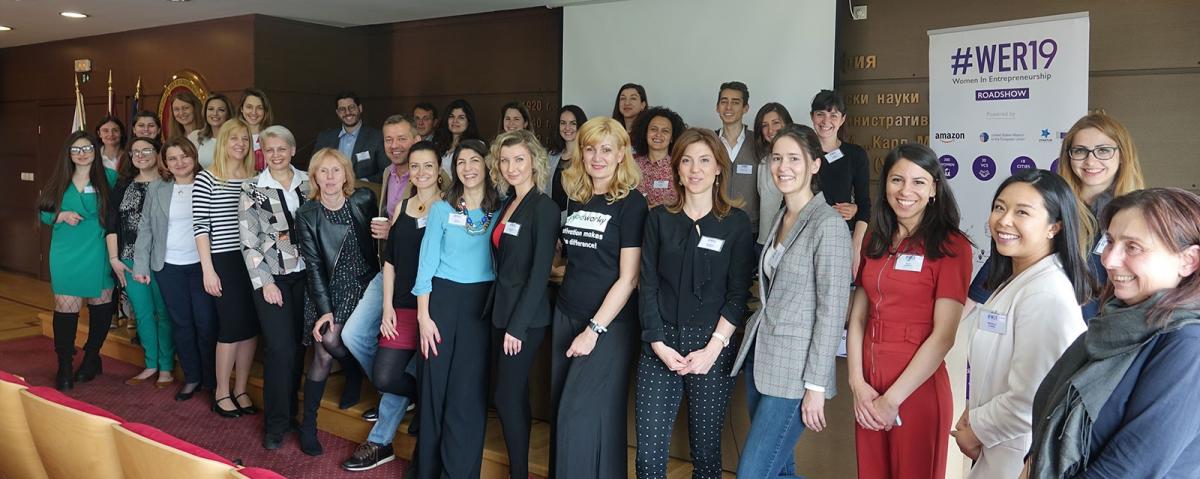
Participants at the Women in Entrepreneurship Roadshow, Sofia, on Friday, May 17th, 2019.
I then flew to Varna, on the Black Sea, to attend a pitch event organized by the Bulgarian Entrepreneurship Center. The center’s benefactor, Larry Biehl, told me how he created the organization to establish a “knowledge bridge” between Bulgaria and the United States. The center has recently implemented an Entrepreneurship Master’s Program at the Varna Free University, a countrywide high-school entrepreneurship program called Teenovator, and small business seminars and courses conducted by leaders in entrepreneurship. At the pitch event, I spoke with the center’s CEO, Ivan Dimov, about his mission to develop U.S. mentorship and investment opportunities for Bulgarian-inspired projects, by making connections to like-minded individuals in both countries.
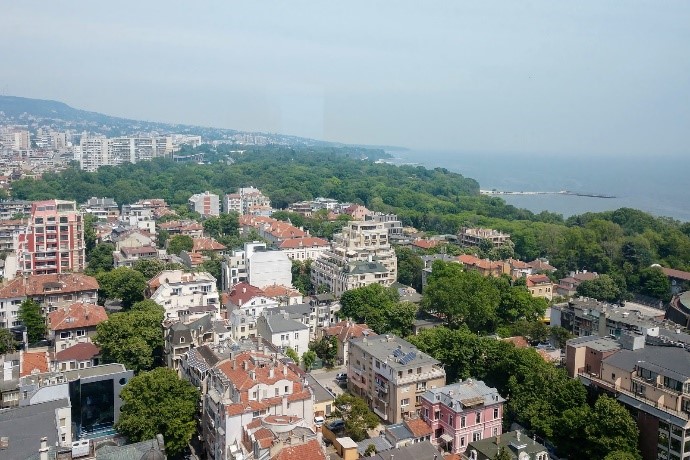 I visited the Innovator co-working space, where Marten Demirev told me about the many bright entrepreneurs driving Varna’s local ecosystem development. I also met Nikolay Petkanov and Dimitar Vasilev of the Bulgarian Business Forums, a nonprofit that aims to support the exchange of information on the latest trends and innovations in different sectors of the economy. We discussed the importance of encouraging collaborations among business leaders, investors, and policymakers, and supporting governmental understanding and advocacy for innovation and entrepreneurial initiatives at the local, national, and European level.
I visited the Innovator co-working space, where Marten Demirev told me about the many bright entrepreneurs driving Varna’s local ecosystem development. I also met Nikolay Petkanov and Dimitar Vasilev of the Bulgarian Business Forums, a nonprofit that aims to support the exchange of information on the latest trends and innovations in different sectors of the economy. We discussed the importance of encouraging collaborations among business leaders, investors, and policymakers, and supporting governmental understanding and advocacy for innovation and entrepreneurial initiatives at the local, national, and European level.
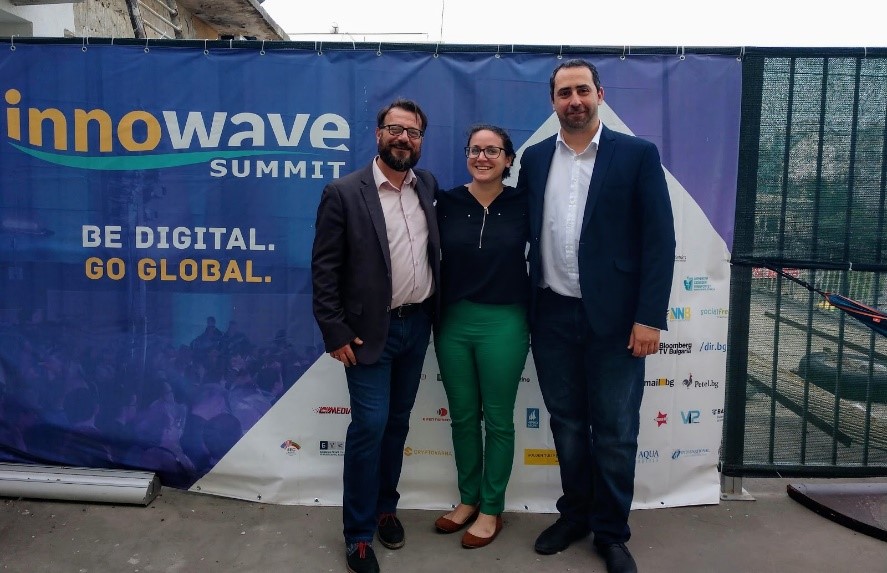 We later held a workshop to brainstorm strategies for building out the next phase of Sofia’s innovation economy. My host, Elena Nikolova, co-founder of Escreo, along with Kremena Dervenkova, director of the Association of the Bulgarian Leaders and Entrepreneurs (ABLE), recruited more than 20 stakeholders from the local entrepreneurial ecosystem to think about traditional elements that make startup communities tick, and to explore Pittsburgh as a case study.
We later held a workshop to brainstorm strategies for building out the next phase of Sofia’s innovation economy. My host, Elena Nikolova, co-founder of Escreo, along with Kremena Dervenkova, director of the Association of the Bulgarian Leaders and Entrepreneurs (ABLE), recruited more than 20 stakeholders from the local entrepreneurial ecosystem to think about traditional elements that make startup communities tick, and to explore Pittsburgh as a case study.
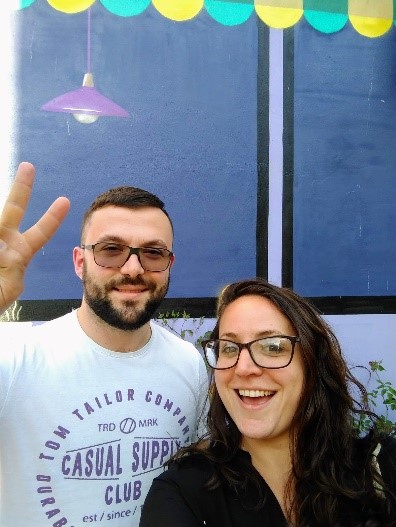 We focused on two issues: education—specifically building skills in marketing and sales—and promoting the country’s assets—highlighting the country to encourage new people, investment, and companies to relocate to Bulgaria. We split into groups and brainstormed current programs and initiatives that are doing good work to address those barriers, as well as what is missing that could be developed from scratch or existing efforts that could be scaled to make a larger impact.
We focused on two issues: education—specifically building skills in marketing and sales—and promoting the country’s assets—highlighting the country to encourage new people, investment, and companies to relocate to Bulgaria. We split into groups and brainstormed current programs and initiatives that are doing good work to address those barriers, as well as what is missing that could be developed from scratch or existing efforts that could be scaled to make a larger impact.
The teams chose one idea to work on collectively: an academy for the country’s tech talent and innovators to learn the marketing and sales skills from CEOs and entrepreneurs who have successfully built companies on the national and international stage. The individual tables discussed what it would take—in human capital, funding, organizational capacity, etc— to actually turn that idea into a reality, and made a plan to follow up in pursuit of that goal.
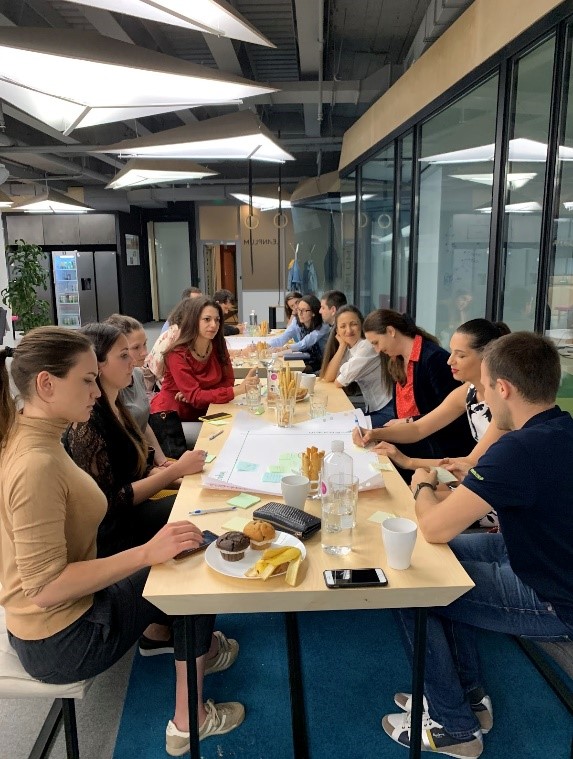 |
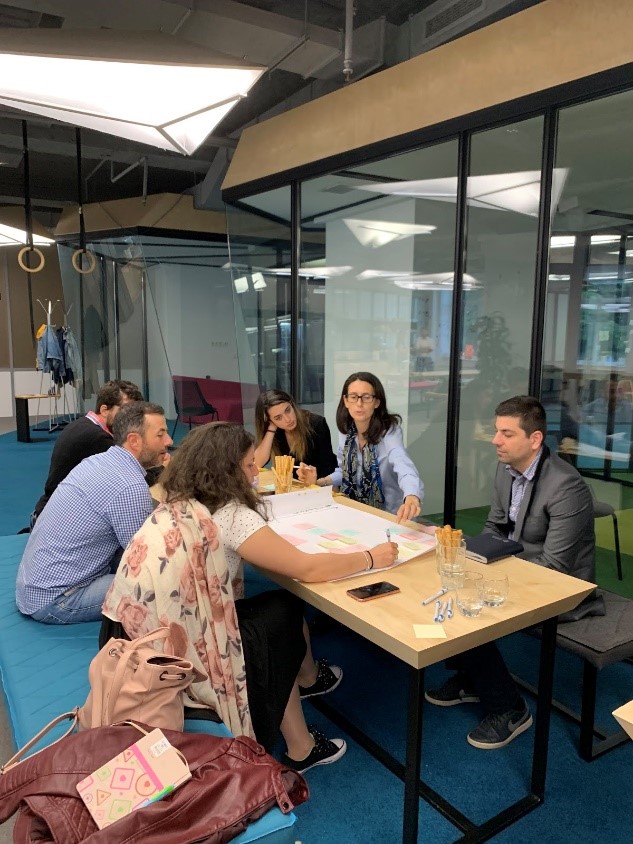 |
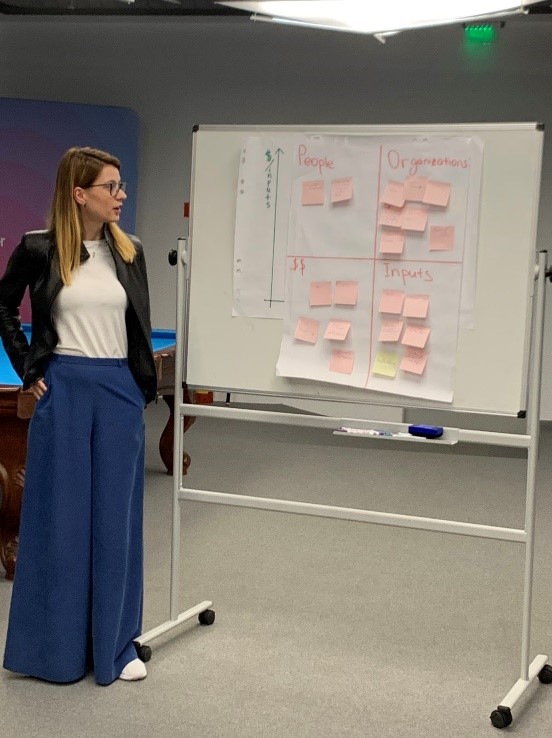 |
| Clockwise from top left: Teams working hard and brainstorming on post-its; Leanplum graciously agreed to host us; Sharing out the ideas generated at each table; Group photo after a fun, productive evening | ||
In the days before I left, I met several other people, including Petar Ivanov and Nadya Vakareeva of the American Chamber of Commerce; Sasha Bezuhanova and Gergana Daneva of Move.BG; the America for Bulgaria Foundation, which funds activities related to entrepreneurship and innovation; the Bulgarian Startup Association (BESCO), which does advocacy work with local, national, and European governments; Belizar Marinov from Eleven; and Nadia Soultanova and Ana Georgieva the Sofia Investment Agency, funders of local businesses throughout the city and region. I am grateful I got to see the system first hand, and have no doubt that these practitioners will take Bulgaria’s startup landscape to the next level.
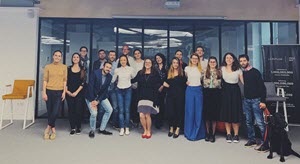 |
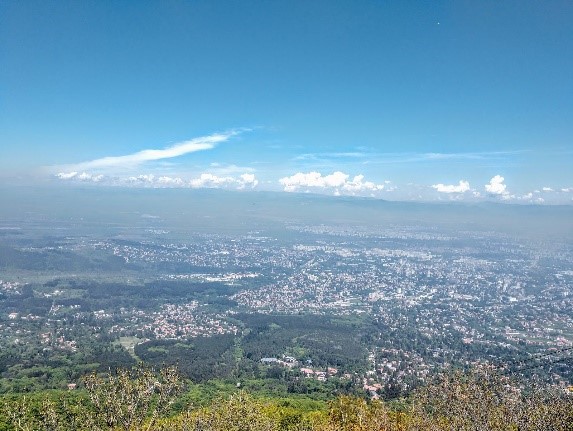 A view of Sofia from Vitosha Mountain |
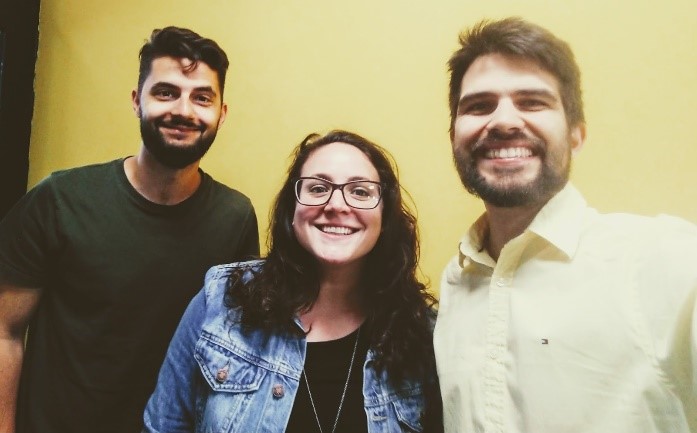 Nikolay Nikolov of ABLE and Natanail Stefanov of BESCO |